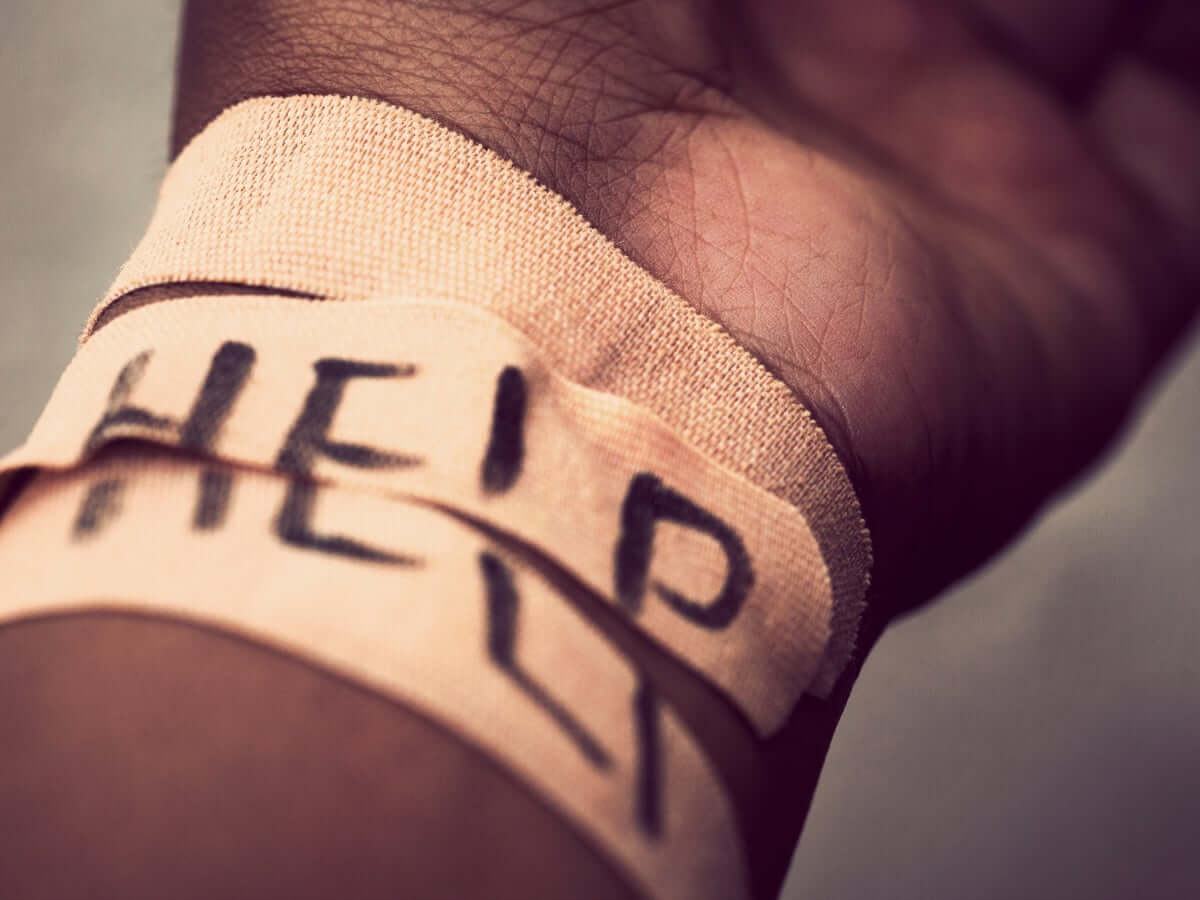Teenage Common Problems and Things Parents Can Help with.
Teenage Common Problems and What can parents can help with.
ALL TOPICS
- Anti Bullying
- Anti-Bullying Tips
- Parenting Tips
Dec 12, 2025 Filed to: Parenting Tips Proven solutions
Do You Know These Teenage Common Problems?
People go through several stages of growth in their entire life span, but the one that shapes them the most is undeniably their teenage. Teenage is a phase accompanied by many physical as well as hormonal changes. It is universally a period of immense confusion and curiosity. A lot of teenage problems faced by young people have some correlation with the electronic media too. Because of the growing influence of digital media on everyone's life, teens have particularly adopted it to interact and build friendships and intimate relationships. Their routines are planned based on their media consumption every day. Additionally, the growing pressures and expectations of adjusting to a fast-paced life do not come without their downsides.
Here are the top 10 teenage common problems prevalent in today's world:
1. Negative Body image

A lot of teenagers today are struggling to accept their bodies. Part of the reason is the stereotypical media portrayal of "slim-fit" bodies for females and "muscular" ones for males as the only acceptable type to have. As a result, several young people fall prey to eating disorders such as binge-eating, anorexia, and bulimia.
2. Bullying
The most common and yet the least reported type of bullying is cyberbullying. Due to the vast accessibility of social media platforms across the world, the instances of online crime, harassment and bullying have immensely increased. In the USA only, 1 in 3 students get bullied in school and even more get bullied online.
3. Social pressure

Teenagers are molded, shaped, and pulled in every possible direction by those closest to them. Social pressure comes under common teenage problems because from a very young age, teenagers are expected to conform and submit to everyone else's expectations. Parents, teachers, friends, siblings, and many other social groups contribute to many teenage problems that develop over time.
4. Depression and Anxiety
Depression and anxiety are much more prevalent among teenagers than before. As discussed previously, they could be linked to the excessive use of social media along with the daily social pressures faced by them. Parents often overlook the early onset signs of depression, considering it to be a normal part of growth. However, serious symptoms could lead to self-harm.
5. Self-Harm

A lot of parents remain oblivious to the fact that their kid is harming him or herself. This is because self-harm is practiced in isolation. The only way parents become aware of such a thing is when things get out of hands. Even though self-harm is not linked to a single age-group, it is counted among the common teenage problems due to a higher rate of depression among them.
6. Sexual Activity
According to a 2017 survey (Youth Risk Behavior Surveillance data), almost 40% of American teenagers in high schools were involved in some form of sexual activity. These are only some of the reported findings. Moreover, due to the growing "hook up" culture and dating applications, many teenagers have no trouble finding a partner to have a physical relationship with. However, without proper knowledge about safe sexual activity and the use of protection, teenagers only land themselves into further physical and emotional turmoil.
7. Drug Use

Teenagers tend to underestimate how easily they could get addicted to something. Many teens who do not find an outlet for their emotional troubles resort to using drugs in order to numb their thoughts and feelings. However, drug use is a part of common teenage problems because, more often than not, it is a result of peer pressure. The pressure of fitting into certain social groups pushes many teenagers to adopt practices they wouldn't adopt otherwise.
8. Academic challenges
Teens suffer from the expectation to perform well at school alongside extra-curricular activities. This results in making them overly stressed and anxious. From the very beginning of their academic lives, they are pressured to get good grades and make it to a good college.
9. Internet addiction

A lot of teens tend to over-use technology, especially in terms of online gaming. Being a normal digital native is harmless; however, addiction to games, particularly the ones with questionable content, can have an adverse impact on an average teenager's mind.
10. Aggression and violence
This one is particularly common among young boys as they hit puberty, causing their bodies to change. They conform to the stereotype of being "strong" because they are boys. They often get involved in physical fights and show a tendency towards violent online games. They are also more likely to fall into bad company.
How To Know Your Children are in Trouble?
As a parent, you might be living in close proximity, sharing the same house with your child, but it is not always sufficient to find out what is going on in their life. There could be several signs your child might be portraying in his or her day to day life, but they are often ignored. However, no matter how busy life gets, your child will always need your support to get through. Therefore, make sure to:
1. Communicate with your child

The communication gap between parents and children can be a huge contributor to common teenage problems. It is important to set certain boundaries between you and your child but not to the extent that he or she finds it hard to talk to you. Therefore, always ask them about how their day went, what troubles they are facing in their academic as well as social life, and never reject or ignore their attempts to speak to you.
2. Accompany him or her

Spending time with your child can do wonders. Go out for a meal or take a walk in the park with them. Be their friend and be understanding of the fact that their troubles might seem unimportant to you, but they mean the world to them. Therefore, listen to them.
3. Pay attention to his or her behavior.

There are always hidden signs in your child's behavior. Be wary of them by looking out for the following:
- A drastic change in their eating or sleeping habits
- Hesitation to share their phones with anyone
- Behavioral changes at home or at school
The best way to find out what's bothering your child is easier than you may have thought. Their cellphones carry their biggest secrets. It doesn't come as a surprise that many teenage problems remain hidden because teenagers would rather speak to their friends than parents about them. What they talk about with their friends or what they search online are the best ways to figure out the problem and the solution in time.
While technology has facilitated many problems, it has also provided their solutions. So, if you're a parent looking to have more control over your child's online habits or simply have a look at their texting or browsing habits, the FamiSafe application is a must-have. With the FamiSafe application on both yours and your child's device, you will be able to trace any suspicious keywords from their search history, text messages, Whatsapp and Facebook posts or messages, Instagram, YouTube, and Twitter.

You can do that by creating a list of offensive or demeaning words relevant to bullying or violence in general, and the moment your child uses any of those words, the application will notify you in no time. It has already helped many people detect signs of pornography, cyberbullying, threats, or just the routine problems bothering their child.
- Location Tracking & Geo-fencing
- App Blocker
- Web Filtering
- Screen Time Control
- Smart Parental Control Setting
What Can You Do to Help Your Child?
1. Understand their transition

Let your child know that their feelings are valid instead of criticizing them. Be conscious of the fact that many teenagers have feelings of jealousy, anger, non-compliance, and dislike ness towards the authority figure. Instead of being sour about them, you must accept them and figure out a way to reduce them or be a guide, so they themselves are able to deal with them.
2. Respect

The opinions or matters of many teens are often sidelined or not given their due importance because of the age factor. However, to help them develop and sustain their self-esteem and confidence, there must be mutual respect.
3. Build trust
Among many factors that aggravate teenage problems is lack of trust. While it is important to know what your child is up to on social media or elsewhere, it is extremely problematic to spy on or doubt them. It will only make matters worse as your child will take extreme measures such as lying, stealing, or hiding in order to avoid your doubts. You must accept your child as they are and work to build trust between you two so you don't have to go to the extent of spying on them.
4. Do not avoid "taboo" topics.

Your child has much more access to drugs and sex than you would like to believe. It is crucial that you speak to them about these sensitive matters and help them be informed before they try to learn on their own and make the wrong decisions. You must also make them conscious about cyber safety.
5. Help them seek help
Educate your child about seeking professional help. Let them know when the right time to seek such help is as you might not always be able to cater to their problems even if you understand enough.
Whether you would like to accept it or not, teenagers go through a plethora of problems that are as relevant as your own problems. It is only fair to be aware of those problems and not panic when you see the signs. It is normal for a child to go through hormonal issues as they grow physically and emotionally, but what defines their life ahead is how well they came out of it. So remain calm, understanding, and empathetic during these crucial years of their growth and find a way to build a healthy relationship with them.



Thomas Jones
chief Editor